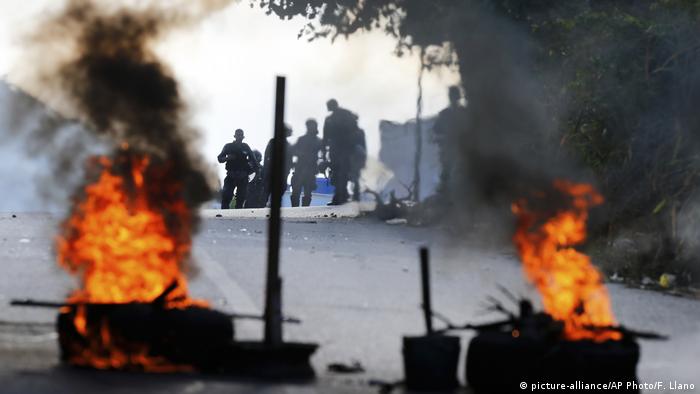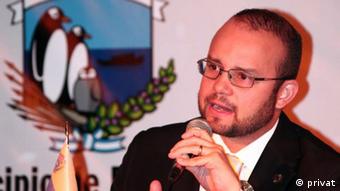It was supposedly a prank, carried out by a small group of Venezuelan military personnel. In the view of observers of the mutiny revealed the explosive nature of the situation in Venezuela.

After the storm, the calm always comes – up to the next storm. After this Monday, the uprising of a group of the Bolivarian national guard triggered all of the alarm sirens, it seemed the Situation in Venezuela to normalize on Monday afternoon. The “criminals”, the Venezuelan Minister of defense Vladimir Padrino, were arrested and would now be punished with the full force of the law.
The mutiny of the national guardsmen once again revealed the fragility of the political and social Situation in Venezuela. The external pressure on President Nicolás Maduro is after his controversial re-swearing-in on may 10. January is stronger than ever. The legitimacy of his second term, is at home and abroad questioned.

Political scientist Mijares: “Venezuela is a failed state”
“In the past there were similar mutinies,” says Victor Mijares, a Venezuelan and a Professor of political science at the Andes University in Bogotá, Colombia. “And it is right in front of you in the future,” he adds.
In the opinion of Mijares, the conditions under which the armed forces need to work, a permanent breeding ground for dissatisfaction. The discontent is particularly widespread in the middle and lower ranks. “These people have the same Concerns as the majority of the population. It is, therefore, a revolt of impoverished citizens, but with weapons and uniforms.”
The question is whether these disaffected parts of the population, and particularly in the armed forces, are able to destabilize the Regime. Not to mention the difficulty to open a path to democratic change in Venezuela.
Aggressive ambiguity in Buenos Aires and Brasilia
What is the role of the neighboring countries play in this scenario? Would you support an uprising against the, in their view, illegitimate Maduro Regime?
For Leonardo Bandarra, a researcher at the Hamburg-based GIGA Institute for regional studies, has the attitude of the presidents of Argentina and Brazil, Mauricio Macri and Congressman Jair Bolsonaro, more to do with the Situation of their own countries. Especially in the case of Bolsonaros, won his election, among other things, with the threat that his country could turn into a second Venezuela.

South American presidents Bolsonaro and Macri: “A solution will come soon”
The Argentinian Macri referred to the Venezuelan President as a “dictator”, while Bolsonaro advises the Venezuelan people to “resistance” and “Confidence”, because “a solution will come soon”.
The key figure, so expert Bandarra, could Venezuela’s President Juan Guaidó. Guaidó should complain to the office of the heads of state, would recognize the regional powers of Argentina and Brazil this step as legitimate. “You could, perhaps, support an Intervention, if this would be required of a Guaidó government,” says Bandarra. However, he doubted that it would be in the public opinion in Argentina and Brazil support.
All paths lead over Washington
Kai Michael Kenkel is a Professor of international relations at the University of Rio de Janeiro. He holds in the first place the further action of the super power in the North, so the USA is crucial: “It all depends on whether the United States is ready to a military Intervention. I don’t think Brazil has the right military capabilities, Venezuela invade, nor thinks it at all about it,” says Kenkel.
Political scientist Mijares agreed and emphasized that the government in Washington, ‘ve been thinking about a different kind of Intervention, at least. “Not necessarily as a classic of military Intervention from the outside, such as, for example, in Afghanistan or in Iraq. It is about creating the conditions for the Venezuelan military to intervene in politics and the Regime from internal collapse.”
From the point of view of Victor Mijares Venezuela is already a failed state: “Apparently, it is preferably in Washington and in the Region of a transitional government under military leadership to recognize, if this opens a way to a democratic renewal in Venezuela.” But nobody knew, so Mijares, how many storms of state can survive boss Maduro, before finally peace in Venezuela.